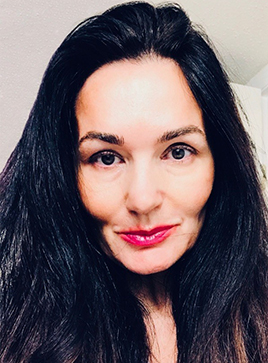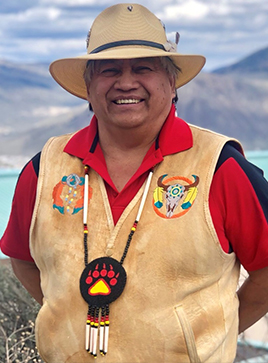COVID-19

The Cedar Project: Supporting Indigenous young people who use drugs during a pandemic


For the past 17 years, the Cedar Project has supported Indigenous young people who use drugs in British Columbia.
As a community-driven and Indigenous-governed research study, it is difficult to sum up in a sentence. Most descriptions feel too narrow, like focusing solely on the academic scope of the work is akin to making a vibrant picture fade on purpose.
"The Cedar Project is a multitude of things," explains Kukpi7 (Chief) Wayne Christian, Chief of Splatsin, Tribal Chief of Shuswap Nation Tribal Council, and Co-Principal Investigator of the study. "It was aptly named—it's an apt analogy—because the cedar tree is many things to us. It provides for us and has a multitude of uses, but it is also a healing plant, a spiritual plant. I think the Cedar Project has been so successful because, as a model, it strives to do the same."
Based in Vancouver and Prince George on the traditional territories of the Coast Salish and Lheidli T'enneh peoples, the Cedar Project is technically a cohort study involving 800 participants and was designed to explore the ways in which historical and lifetime traumas affect health. For example, studies from the project have examined the increased vulnerability to HIV and hepatitis C (HCV) experienced by Indigenous people who use drugs (between the ages of 14 and 30), and the findings have demonstrated direct links between having a parent who attended residential school and risk for HIV or HCV infection, sexual assault, and suicide.
"The research tells us what we [Indigenous communities] already know," notes Kukpi7 Christian. "It's the multi-generational impacts of historical traumas, residential schools, and sexual abuse that brought these young people to addiction and to the streets. This doesn't ‘just happen.' And so we turn to the research to use it—the data and the evidence—to advocate for our young people and to create a new way forward."
The entire approach to research is governed by an independent body known as the Cedar Project Partnership, which includes Indigenous Elders, leaders, health and social service experts, and scholars. Kukpi7 Christian emphasizes the importance of this governance model, as the Partnership is rooted in the First Nations principles advocated by OCAP and the Tri-Council Policy Statement, Chapter 9: Research Involving the First Nations, Inuit and Métis Peoples of Canada. The Partnership sets the direction through hands-on decision making and is involved in everything from data interpretation to determining how to share the findings in an ethical way since "these are live issues in our community."
"The participants aren't numbers to us," he says. "They are our brothers and sisters, our aunties and uncles, sons and daughters. They are our relations. And the work of the Cedar Project is to make sure their voices are heard and that their stories are told without demeaning them in any way."
Treating the participants as relations—and earning their trust—has involved creating safe and welcoming spaces in the Cedar Project offices, both in Prince George and in Vancouver's Downtown Eastside. These are places where the participants can be "looped into support with no questions asked and treated as human beings," notes Kukpi7 Christian, so the arrival of COVID-19 was particularly concerning.
"The last thing we wanted to do was turn our back on this community," says Dr. Patricia Spittal, Co-Principal Investigator of the Cedar Project and Professor in the School of Population and Public Health at the University of British Columbia. "In urban centres, everything came down so fast [with public health restrictions], but we knew we had to find ways to quickly adopt safety protocols and keep our doors open."
Part of this decision stemmed from the fact that people who use drugs are currently facing two public health emergencies: the ongoing overdose crisis and COVID-19.
"The public health messaging to prevent overdoses is the exact opposite of the public health guidance to prevent COVID-19," explains Dr. Spittal. "They are both correct in their contexts, but those contexts are in conflict right now—and the problem is that we can't press pause on one crisis to deal with the other. We have to support people through both."
Through their previous studies with the Cedar Project, the team has found that using mobile phones is an effective way to provide support to participants, in terms of both maintaining social connection and linking participants with health services. With new federal and provincial funding, the team is now building on that previous work to adapt and test the efficacy of a bundle of virtual supports for those at risk of COVID-19. This strengths-based, wraparound support will use their existing software and weekly text messaging check-ins with trusted case managers so that "in this time of isolation, Cedar [can offer] connection," says Kukpi7 Christian.
The study will also assess the impact of COVID-19, including the pandemic response and its domino effects, among Indigenous people who use drugs. The Cedar Project's existing partnerships with the BC Centre for Disease Control also create opportunities to influence public policy moving forward, as the research findings will provide insight into critical areas of need. The data the team collects through this work will address current gaps in academic literature about the best ways to support this population through these types of events.
But the data is only one piece of the puzzle.
"This is more than research," says Kukpi7 Christian. "This is healing."
Related reading
- The Cedar Project: Reflecting on Process
- Research Breakthroughs: Cultural Connection
- Remembering people in research: The Cedar Project and residential school trauma
- The Cedar Project: Culturally-safe, trauma-informed COVID-19 response among young Indigenous people who use drugs
- Young Indigenous people who use drugs in BC 13 times more likely to die than young Canadians
- Harm reduction information for people who use substances, overdose prevention services and supervised consumption sites and social services
- Date modified: